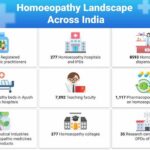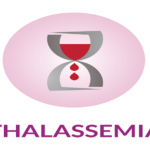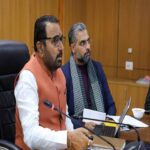New Delhi, May 3, 2018:
The key objective of the meeting was to come to a shared and common understanding of the multiple components to enable HWC to deliver comprehensive primary health care, and obtain inputs to the draft Operational Guidelines.
Workshop proceedings started with an overview presentation of the various components of Comprehensive Primary Health Care. It emphasized the critical importance of selecting motivated candidates as Mid-Level Health Providers and strengthening the Primary Health Care team including the Multi-Purpose Workers (male and female) and ASHA. The importance of the shift from selective to comprehensive primary health care, the uninterrupted availability of medicines for chronic diseases, and the criticality in establishing a seamless continuum of care, to build trust and confidence in the public health system and in reducing out of pocket expenditure were highlighted. The presentations also drew attention to the platforms created under the National Health Mission which could be effectively leveraged to operationalize and scale up HWC. In addition, the importance of integrating active case finding for tuberculosis in HWC to meet the national commitment of TB elimination was emphasized.
State participants worked in groups on the following themes: Infrastructure and planning for HWCs, human resources, and institutionalizing the Mid-Level Health Provider, inputs required for HWC in urban areas, organizing referrals and continuum of care, making IT systems work for primary health care, expanding access at primary health care level to essential medicines and diagnostics, and financing. The workshop also provided an opportunity for the participants to seek clarification on various issues.
States were asked to develop state specific action plans indicating timelines. In the first year of the implementation, States were urged to prioritize all PHCs as HWCs in the selected blocks and districts, where infrastructure and HR were already in place. Aspirational districts were to be prioritised. Concurrent strengthening of Sub Health Centres as HWC (HWC-SHC) would also be undertaken in a phased manner so as to meet the commitment of operationalizing 1,50,000 HWC by 2022. However, it was emphasized that the screening, prevention, control and management of non-communicable diseases, which is one of the packages of expanded services under CPHC, should be widely offered at HWC-SHC in order to address the increasing prevalence of chronic diseases.
States were asked to provide inputs to the draft operational guidelines which are expected to be finalized soon, and to undertake orientation of state and district teams on the concept and vision of delivering Comprehensive Primary Health Care through the Health and Wellness Centres.






